Why the American Translators Association Matters for Quality Translation

Summary
In today’s global market, translating isn’t just about swapping words. It’s a bridge for business, diplomacy, and law. One wrong word can kill a contract, endanger a patient, or even change a court decision. Because of that, the market needs a guarantor of precision, cultural sense, and legal compliance. The American Translators Association (ATA) is that guarantor. This blog will explain why ATA membership and ATA certification matter for both clients and translators, highlighting how translation certification in the USA impacts quality.
1. What Is the American Translators Association (ATA) and Why Does It Matter?
The American Translators Association (ATA) is a nonprofit organization based in Alexandria, Virginia. Founded in 1959, the ATA is the largest professional association for translators and interpreters in the United States. Its core mission revolves around three main principles: education, networking, and ethics.
What Does the ATA Do?
The ATA plays a pivotal role in improving the translation industry by providing resources and support for translators, helping them maintain high standards of professionalism. The association offers:
- Continuing Education: Webinars, conferences, and online courses keep translators updated on the latest translation methods, tools, and techniques.
- Ethical Standards: The ATA maintains a strict Code of Ethics that ensures translators adhere to confidentiality, accuracy, and professionalism in their work.
- Networking Opportunities: With a large community of professionals across various specializations, the ATA helps translators connect, find job opportunities, and collaborate on projects.
For clients, hiring an ATA certified translator signals that the translator has met rigorous standards and follows a code of ethics. Whether you need translations for USCIS applications, legal documents, or business communications, the ATA certification provides confidence that the work will be accurate, reliable, and legally valid.
Why the ATA Matters for Clients:
- Quality Assurance: ATA certification guarantees that the translator is proficient in both the source and target languages and understands the specific terminology related to the field.
- Legal Compliance: For legal and official documents, ATA-certified translators ensure that translations meet the standards required by agencies like USCIS and courts.
- Cultural Sensitivity: Certified translators are not only skilled in language but also in adapting translations to suit cultural norms, preventing misunderstandings and ensuring that the intended message is conveyed.
By hiring an ATA-certified translator, clients are ensuring that they are working with a skilled professional who is up-to-date with the latest translation standards and practices.
2. ATA Certification: The Benchmark for Quality Translation Services
One of the most important offerings from the ATA is its certification program, which serves as the benchmark for quality translation services. The ATA certification exam is one of the most rigorous and respected translation exams in the industry.
The ATA Certification Process
To become ATA certified, translators must pass a challenging exam that tests their translation skills, accuracy, and fluency. The exam includes two translation passages, typically drawn from real-world source materials, which are graded by other ATA-certified translators. The translation is evaluated for:
- Accuracy: Ensuring that the translation precisely matches the meaning of the original text.
- Fluency: Ensuring that the translation is written in smooth, natural-sounding language, suitable for the target audience.
- Terminology: Ensuring the correct use of industry-specific terms and language.
Translators must choose a language pair and may also choose to specialize in specific fields, such as legal, medical, or technical translation. This specialization is particularly important for clients who need translations in highly technical areas.
Benefits for Clients:
- Guaranteed Quality: The rigorous exam process ensures that only highly qualified translators are certified, providing clients with a reliable guarantee of quality.
- Industry Recognition: Many legal, medical, and government organizations, including USCIS, recognize and require ATA certification for official translations.
- Specialization: Certified translators often specialize in specific fields, such as legal or medical translation, ensuring that the correct industry terminology is used.
By choosing an ATA certified translator, clients are choosing a professional who has been vetted by the industry’s leading body, ensuring that their documents are translated with the utmost accuracy and professionalism.
3. The Advantages of Choosing an ATA-Certified Translator
Hiring an ATA certified translator brings numerous benefits that go beyond just accuracy. Certified translators are rigorously tested and trained to handle specialized language, making them ideal for high-stakes translations.
Why Choose an ATA-Certified Translator?
- Higher Accuracy: Certified translators are held to high standards of precision, ensuring that all translations are error-free and convey the correct meaning.
- Industry Expertise: ATA-certified translators often specialize in specific areas such as law, medicine, technology, or business, which is crucial for translating specialized documents with complex terminology.
- Professionalism: ATA certification guarantees that the translator follows a strict code of ethics, ensuring confidentiality and proper handling of sensitive information.
What Clients Gain from Choosing an ATA-Certified Translator:
- Reliable Results: Since certified translators are required to pass exams that test their ability to accurately translate complex materials, clients can trust that the translation will be correct.
- Legal Validity: For documents that require legal recognition, such as immigration papers or court filings, an ATA certified translator ensures that the translation meets legal requirements.
- Cultural Awareness: ATA-certified translators are trained to understand and respect cultural nuances, ensuring that the translation resonates with the target audience and avoids potential misinterpretations.
Hiring an ATA-certified translator is a step toward ensuring that your translation projects are handled with the professionalism and expertise they deserve.
4. How ATA Certification Benefits Businesses and Organizations
For businesses and organizations, using ATA-certified translators offers several strategic advantages. In an increasingly globalized world, the ability to communicate clearly and accurately across languages is essential for maintaining compliance and protecting your reputation.
Why Businesses Need ATA-Certified Translation Services
- Regulatory Compliance: Many industries, including pharmaceuticals, law, and finance, require certified translations to meet regulatory standards. Certified translations ensure that documents are legally valid and accepted by government agencies, courts, and regulatory bodies.
- Accurate Communication: Clear and precise translations help businesses avoid misunderstandings, which could lead to costly errors, legal disputes, or damage to a company’s reputation.
- Global Expansion: For companies looking to expand into new markets, certified translations ensure that marketing materials, product instructions, and legal documents meet local regulations and are culturally appropriate.
Benefits for Businesses:
- Risk Mitigation: Certified translations reduce the risk of legal disputes, regulatory issues, and financial penalties.
- Improved Efficiency: By choosing an ATA-certified translator, businesses can ensure that their translations are accurate, fast, and compliant with industry standards.
- Better Customer Trust: Clients and partners can trust your communications when they are handled by certified professionals, enhancing your company’s credibility in international markets.
Using ATA-certified translators helps businesses operate smoothly in global markets by ensuring that translations meet legal and industry standards.
Conclusion
The American Translators Association (ATA) plays a pivotal role in maintaining high standards in the translation industry. With its certification program, the ATA guarantees the quality and professionalism of translators, ensuring that their work is legally valid and culturally appropriate. For businesses, individuals, and organizations, choosing an ATA-certified translator means having peace of mind that the translation is accurate, reliable, and legally compliant. Whether you need USCIS-certified translations, legal documents translated, or marketing materials adapted for global markets, ATA certification is the mark of quality and professionalism you can trust.
Daniel Brooks is a New York City-based writer and content strategist with a deep curiosity for how language shapes connection across cultures. With over ten years of experience crafting digital content for global audiences, Daniel brings a thoughtful and practical voice to the Connected Translations blog.


